Anti-Semitism, anti-Zionism, and a cancelled exhibition
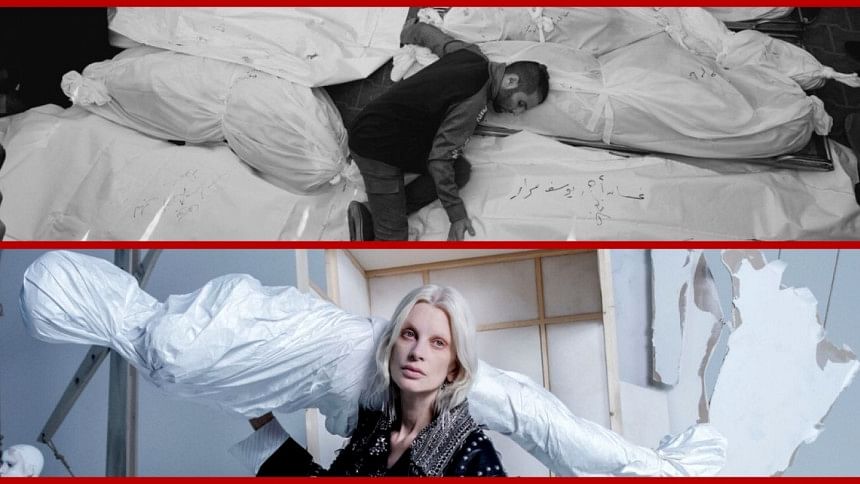
The world of storytelling and history is deeply rooted in the power of narratives, which often overshadows the significance we attribute to mere facts and figures. While statistics can bolster any argument, the manner in which they are presented (and the identity of the presenter) ultimately hold sway over our interpretation of events, facts, or data. Deciphering the truth from falsehoods or navigating the grey areas becomes increasingly complicated.
Let's delve into the case of Shahidul Alam, Tanzim Wahab, and Munem Wasif: three curators from Bangladesh participating in the Biennale für aktuelle Fotografie in Germany. They dedicated over a year and a half to curating an exhibition featuring 44 artists, only to be blindsided by the abrupt cancellation of the event on November 21, citing allegations against them of anti-Semitism.
It is crucial to distinguish between anti-Semitism, characterised by hostility or prejudice against Jewish people, and anti-Zionism, which opposes the establishment of the Jewish state, Israel on Palestinian land. Shahidul Alam has consistently expressed his pro-Palestinian views publicly, rooted in humanitarian concerns. Following Hamas' attack on October 7, Shahidul wrote on October 8: "The news of semi-naked Israeli bodies being paraded is horrendous and cannot be justified. News of the ongoing violence against Palestinians is horrendous and cannot be justified. We must not see any of this violence in isolation. Lasting peace can only be based on a just solution. I feel for all Palestinians and Israelis lives destroyed."
As the disproportionate number of Palestinian casualties due to bombings by Israel kept growing (in contrast to the number of Israelis who had died of the attack by Hamas), similar posts came in bulk from Shahidul in the following days.
However, the cancellation statement of the exhibition did not explicitly state that it was due to pro-Palestinian support; instead, the organisers portrayed Shahidul as an anti-Semitic person. Before the official cancellation, the board of the exhibition had held multiple meetings with the curators and decided to continue with the exhibition. But the decision to cancel was abruptly finalised soon after, following discussions with the Biennale's board, responsible state mayors, and BASF (the main sponsor).
The curators were not given prior notice of the cancellation, which violated ethical standards and their written contractual agreement with the exhibition authority. The agreement explicitly stated that any press releases must be mutually agreed upon by the director and the three curators. The curators learned about the cancellation through a press release that claimed that Shahidul's posts on Facebook were anti-Semitic.
Anti-Semitism is defined as hostility or prejudice against Jewish people, while anti-Zionism opposes the movement to create a Jewish state and the occupation of Palestinian land. Shahidul's posts were anti-Zionist, not anti-Semitic. Construing them as anti-Semitic imposes a false narrative that aligns with the activities of Israel, overlooking the decades-long oppression of the Palestinian people.
Another part of the statement from the Biennale für aktuelle Fotografie mentioned racist comments not being deleted. However, freedom of expression should not be exclusive, and comments made on Shahidul's posts cannot be his responsibility. In subsequent meetings, the co-curators communicated that they would not work on the biennial without Shahidul, adding irony to the cancelled edition titled "Listening to Disquiet," which aimed to address the importance of listening when forming opinions. This act of imposing a negative narrative on artists also has long-lasting consequences. Not everyone is going to verify the information or go back through all of the posts and statements by said artists. In the eyes of anyone who is going to read or see the exhibition director's statement that they released to the press, the three curators will be deemed anti-Semitic.
In another exhibition, the entire docmuenta 16 search committee stepped down on November 16 following the resignation of Bracha Lichtenberg Ettinger and Ranjit Hoskote (each for different reasons concerning the Israel-Hamas war). In their resignation, they cited an "emotional and intellectual climate of over-simplification of complex realities and its resulting restrictive limitations." In 2022, then documenta director general Sabine Schormann also resigned amid an anti-Semitism scandal concerning an Indonesian collective's mural. Schormann defended the piece citing artistic expression giving freedom to the artistic directors to curate the show according to their views.
Art, by nature, differs from the practicalities of daily life. It does not offer tangible material value, nor does it simplify or prolong human existence. The definition of art is an eternal subject of debate. But there is no doubt that art has been one of the more visible areas in humanity of expression and statements.
On the other hand, fashion brand Zara stirred up controversy with its Atelier collection's advertisement campaign. In one photo, a model was seen holding a mannequin wrapped fully in white cloth, which created an image too similar to the horrific photographs of corpses wrapped in their funeral garment coming from Gaza in recent times. This prompted severe criticism from pro-Palestinian netizens. Many called for a boycott of Zara and there were protests around many Zara outlets globally as well. In response, Zara pulled the advertisement campaign and removed the objectionable images from its website. In its defence, Zara stated that the campaign was planned in July and shot in September, which was before the Israel-Hamas war started in October. Even with this in mind, the timing of the campaign going live simply cannot be overlooked. The internet is being flooded with dreadful images of dead Palestinians, including children. To put out an advert that looks so similar to the images of Palestinian mothers holding their dead children is insensible without a doubt. And it took the brand days of criticism and boycotts to actually remove the images. High-street brand M&S also had to apologise for its Christmas campaign, in which the colours of the Palestinian flag were shown being burned.
So, clearly, the Israel-Palestine conflict has had its fair share of presence in art. But the tradition goes that any anti-Israeli indication in art receives immediate official authoritative action terming it anti-Semitic, while anything that can be considered anti-Palestinian only comes into conversation when pro-Palestinian campaigners raise their voices and start protests and boycotts.
So far, since October 7, nearly 21,000 Palestinians have been killed in Gaza. Meanwhile, the revised death toll from Hamas' attack on Israel stands at 1,139. This stark contrast is reason enough to understand why such large numbers of people have started speaking out against Israel's bombing of Palestine. We must not forget that Israel is a recognised state and a nuclear power. It has one of the most technologically advanced and well-equipped military forces in the world. It is also a recognised democracy. Hamas, on the other hand, is neither a state nor a country. It does not officially represent the entirety of the Palestinian people. Yet, due to Israel trying to fulfil its commitment to end Hamas, the majority of Palestinians who have died were innocent civilians, and nearly half of them were children. Most of the 2.3 million Palestinians of Gaza are now displaced, and are without access to food and water. The injured have almost no access to medical treatment as, according to the World Health Organization, there are no functional hospitals left in Northern Gaza and only nine were left in Southern Gaza by December 21 due to the continuous bombings by Israel.
The killing of innocent Palestinian civilians by Israel is not a new issue. Even in August this year, Human Rights Watch condemned Israeli military and border forces for killing innocent children in the West Bank. The recent genocidal scale has led parents to mark their children's names on their bodies for identification purposes in case of bombings.
The United Nations Security Council's urgent vote for a ceasefire was vetoed by the US, citing that it could benefit Hamas. This reasoning is deemed unacceptable given the large-scale civilian deaths at the hands of Israel. People across various mediums are outraged, and the pro-Palestinian sentiment is expected to grow. Countries like the US, Germany, and the UK—regular advocates for freedom of speech and upholding human rights—are criticised for supporting Israel and taking the wrong stance. This remained true for the UNGA vote that was held on December 12 for a humanitarian ceasefire, where 153 countries voted in favour of the proposal and 10 voted against (including the US), while 23 abstained (including the UK and Germany).
In Europe, countries like Germany, France, and the UK have tacitly supported the pro-Israeli cause since the October 7 Hamas attack, with Germany seemingly aligning itself with controversial Israeli actions. However, this alignment, possibly to overcompensate for historical associations with the Holocaust, might lead to a retrospective realisation of standing on the wrong side of history.
Monorom Polok is a member of the editorial team at The Daily Star.
Views expressed in this article are the author's own.
Follow The Daily Star Opinion on Facebook for the latest opinions, commentaries and analyses by experts and professionals. To contribute your article or letter to The Daily Star Opinion, see our guidelines for submission.

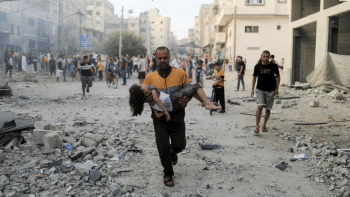
 For all latest news, follow The Daily Star's Google News channel.
For all latest news, follow The Daily Star's Google News channel. 

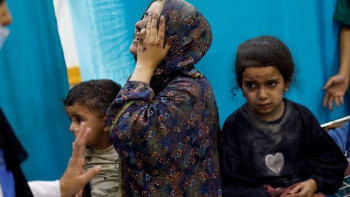







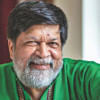
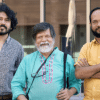



Comments